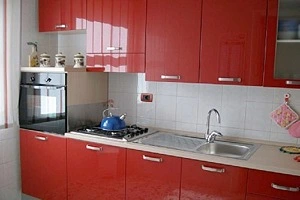

1.Kitchen Waterproofing – importance
Kitchen waterproofing is essential for various reasons, whether in homes, hotels, factories, or companies. Here are some of the key reasons why kitchen waterproofing is important:
- Protecting the Building Structure: Water damage can cause significant structural damage to buildings over time. Kitchen waterproofing can prevent water from penetrating the walls, floors, and ceilings, which can help maintain the structural integrity of the building.
- Preventing Health Risks: Water damage can lead to the growth of mold and mildew, which can pose health risks to occupants, particularly those with allergies or respiratory problems. Kitchen waterproofing can prevent the growth of mold and ensure a healthy living environment.
- Maintaining Cleanliness: Waterproofing can make cleaning and maintaining the kitchen easier. Waterproofing materials are resistant to moisture and stains, making them easy to clean and maintain.
- Avoiding Costly Repairs: Water damage can be expensive to repair, especially if left unchecked for a long time. Waterproofing the kitchen can help avoid these costly repairs, which can include structural repairs, mold remediation, and flooring replacement.
- Ensuring Compliance with Regulations: In some cases, kitchen waterproofing is a requirement for compliance with local building codes and health regulations, particularly in commercial kitchens. Waterproofing can help ensure compliance with these regulations and avoid costly penalties.
2. available systems for Kitchen Waterproofing
There are various kitchen waterproofing systems available for homes, hotels, factories, and companies. Here are some of the most popular systems:
- Cementitious Coating: Cementitious coatings are a popular kitchen waterproofing system that involves applying a mixture of cement, sand, and other materials to the surface. This system is highly durable and can withstand harsh conditions. Cementitious coatings can be applied to a variety of surfaces, including concrete, wood, and metal.
- Epoxy Coating: Epoxy coatings are a type of kitchen waterproofing system that involves applying a layer of epoxy resin to the surface. Epoxy coatings are highly durable and can resist chemicals, stains, and abrasions. They are ideal for industrial kitchens and food processing plants.
- Polyurethane Coating: Polyurethane coatings are another popular kitchen waterproofing system that involves applying a layer of polyurethane to the surface. This system is highly effective at preventing water from penetrating the surface and can withstand heavy foot traffic. Polyurethane coatings are ideal for commercial kitchens.
- Liquid-Applied Membrane: Liquid-applied membranes are a type of kitchen waterproofing system that involves applying a liquid membrane to the surface. This system is easy to apply and can be customized to suit the specific needs of the kitchen. Liquid-applied membranes are ideal for a variety of surfaces, including concrete, wood, and metal.
- Sheet Membrane: Sheet membranes are thin, flexible membranes that are applied to the surface. They are made of various materials, including PVC, modified bitumen, and EPDM. Sheet membranes are easy to install and highly effective at preventing water from penetrating the surface.
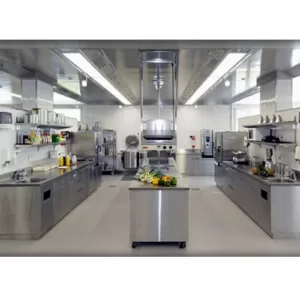

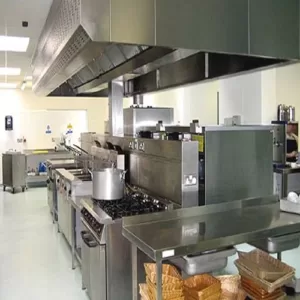

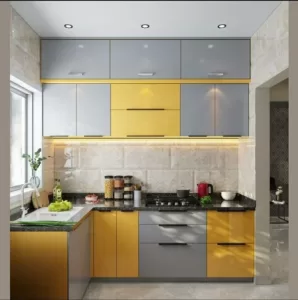

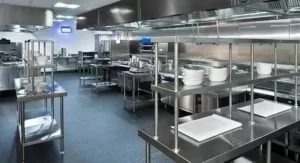

3. selection of Kitchen Waterproofing system
When it comes to selecting a kitchen waterproofing system for homes, hotels, factories, or companies, there are several factors to consider. Here are some of the key factors to keep in mind:
- Type of Surface: The type of surface in the kitchen, such as concrete, wood, or metal, will impact the choice of waterproofing system. Certain systems are better suited for particular surfaces, so it is important to choose a system that is compatible with the surface.
- Level of Protection: The level of protection required will also impact the choice of waterproofing system. For example, a commercial kitchen with heavy foot traffic will require a more durable and robust system than a residential kitchen.
- Durability: The durability of the waterproofing system is another important factor to consider. The system should be able to withstand wear and tear and remain effective over time.
- Maintenance Requirements: Different waterproofing systems have different maintenance requirements. It is important to choose a system that is easy to maintain and does not require frequent repairs or replacements.
- Budget: The cost of the waterproofing system is also an important consideration. It is important to choose a system that fits within the budget while still providing adequate protection for the kitchen.
Based on these factors, here are some general recommendations for selecting a kitchen waterproofing system:
- For residential kitchens, cementitious coatings or liquid-applied membranes are suitable options that provide adequate protection at a reasonable cost.
- For commercial kitchens, where heavy foot traffic and harsh chemicals are present, epoxy coatings or polyurethane coatings are more suitable options that offer greater durability and protection.
- In industrial kitchens or food processing plants, epoxy coatings or modified bitumen sheet membranes are the preferred options due to their high resistance to chemicals and abrasions.
Ultimately, the best choice of waterproofing system will depend on the specific needs and requirements of the kitchen. Consulting with a professional waterproofing contractor can help ensure the right system is selected for the kitchen’s specific needs.
GEOLIZ WATERPROOFERS PVT. LTD.
Waterproofing Products & Services Guide
For details on other waterproofing products & Services
